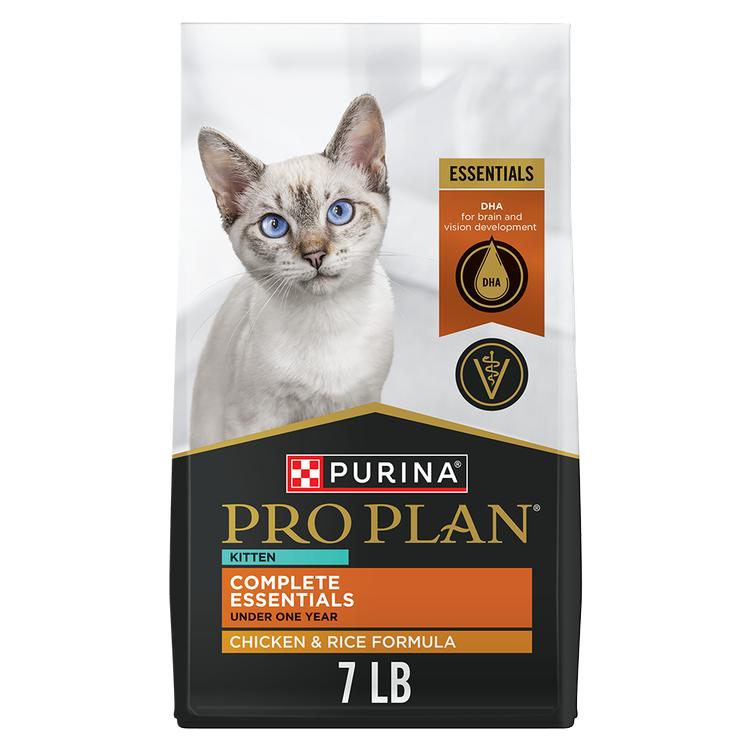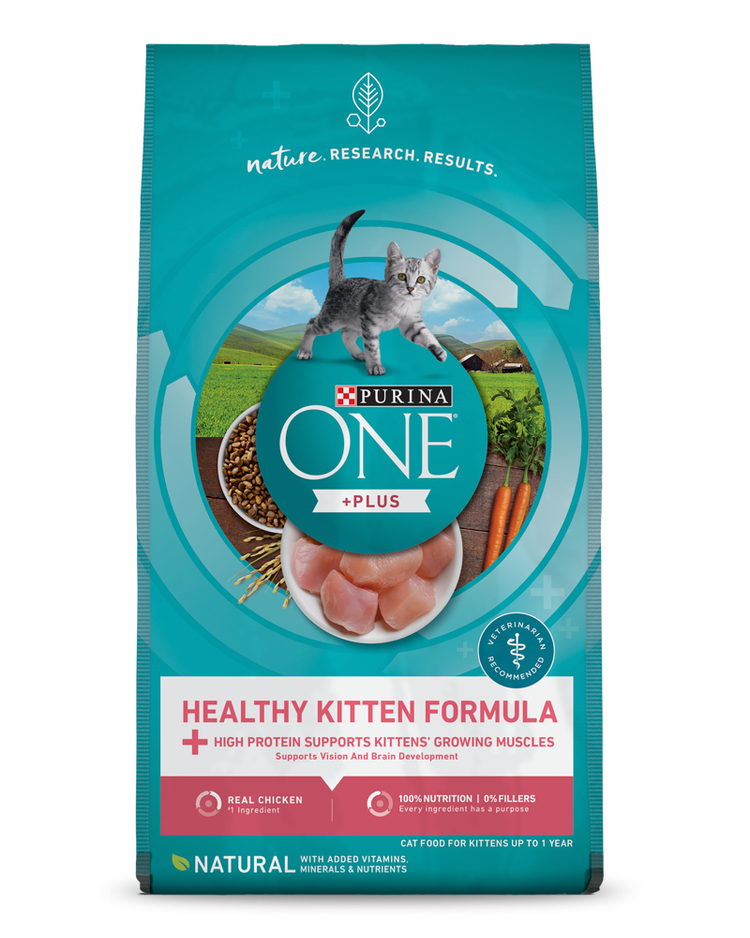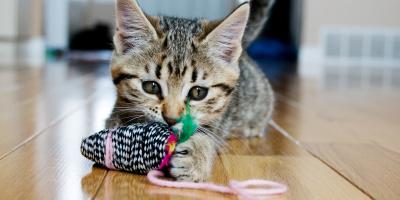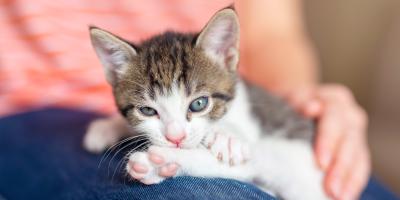Kitten Diarrhea: Causes, Symptoms and Treatment


Kittens have very sensitive little stomachs, and simple changes to their environment or diet can easily lead to diarrhea.
While it’s normal for a kitten to have a softer stool than that of an adult cat, if it’s shapeless or has a liquid or mushy consistency, it’s highly likely that the kitten has diarrhea. The condition is relatively common, and luckily, it tends to be very treatable.
Kitten Diarrhea Causes
Why does your kitten have diarrhea? It’s most likely caused by one of the following:
- Feeding cow’s milk – This is one of the most common causes of diarrhea in kittens. It’s a misconception believed by many that cow’s milk is good for kitties. However, the truth is the complete opposite: cats cannot digest cow’s milk. Rather than giving cow’s or any kind of milk to your kitten, get kitten formula or milk replacer that has been specially formulated for cats. This can be mixed with their food to help the transition into a solid diet.
- Feeding problems – Feeding issues, such as allergies or intolerances, feeding too much, or the consumption of inedible items (such as fabric, bones, etc.) can all be causes of vomiting and diarrhea in kittens. If you suspect your kitten’s tummy troubles are due to an allergy or if she has consumed something she’s not supposed to, make an appointment with your vet as soon as you can.
- Diet changes – Sometimes when people buy or adopt kittens, they don’t follow the feeding advice provided by the previous home and instead suddenly change to a new diet. But when this happens, it can cause intestinal issues. While it’s not always possible to know what your kitten was fed previously, if you can, stick with their current diet and change it gradually over a period of several days. If you’re unsure, consult your vet for advice on feeding your kitten.
- Intestinal parasites – Intestinal parasites, such as roundworms and tapeworms, can cause diarrhea in kittens. If left too long, they can even impact their growth rate. Kittens will need to be dewormed at two weeks old, then at two-week intervals until they turn 12 weeks old, and at monthly intervals thereafter. If you purchase your kitten from a reputable breeder or adopt from a reputable rescue or shelter, they’ll ensure that your kitten is up-to-date with flea and worm treatments when you get them.
- Infections and viruses – Bacterial infections, such as salmonella and campylobacter, can cause vomiting and diarrhea in kittens and in adult cats. Viruses such as feline immunodeficiency virus (FIV), panleukopenia, feline leukemia virus, and rotaviruses can all cause intestinal issues, too. These conditions require veterinary treatment, so call your vet as soon as symptoms appear.
- Environmental stress – Sometimes diarrhea in kittens may be due to changes in their environment such as a house move, a new pet, or a baby. The event of leaving their mother and siblings is also stressful in itself! Make sure you give them plenty of time to settle and provide quiet spaces away from the hustle and bustle of the home.
- Illness – Colitis can be another cause of diarrhea in kittens and cats. If it is chronic, you may also notice lethargy, poor appetite, and dehydration.
If you are dealing with a sick kitten, it’s crucial to have her seen by a vet before the situation becomes dire. You may ask, What can you feed a kitten with diarrhea? It’s best to check with your vet; they may recommend a special therapeutic food for a short period of time. Avoid treats and opt for smaller meals before slowly reintroducing their normal diet.
Kitten Diarrhea Colors: Explaining Concerning Colors
Normal kitten poop should be brown in color. If your kitten’s poop is one of the colors listed below in our kitten diarrhea color chart, see your vet as soon as possible. It can be a sign of a serious condition that may require immediate medical attention.
- Kitten diarrhea streaked with blood – Indicates blood in stool.
- Kitten with black diarrhea – Usually indicates bleeding high in the stomach.
- Kitten with yellow diarrhea – Almost always a sign of bacterial imbalance in the bowel. With diarrhea, it may be related to coccidia.
- Orange – Usually indicates way too much bile in the stool, which can occur with liver or gallbladder concerns.
- Green poop in kittens – This could be mucous or if your kitten has eaten grass.
- Kitten with white poop – Highly unusual color indicating a severe imbalance or infection in the bowel.
- Mucous – Yellowish, white, or clear slimy substance indicating severe bowel irritation.
- Brown with white spots – Likely this is a sign of intestinal parasites.
Use this handy kitten poop chart to check your kitten’s poop for color and consistency regularly.
To diagnose your kitten’s loose stools, your vet may take a stool sample to look for intestinal parasites, worms, or any signs of infection. Your veterinarian may take X-rays to look for other causes. While not very pleasant, it can also be useful to take a photo of your kitten’s diarrhea to show your vet.
Kitten Diarrhea Treatment
What to give a kitten with diarrhea? The treatment method for your kitten’s diarrhea will depend on the cause. If it’s due to an allergy or intolerance, a diet change may be suggested. For parasites, a flea and worm treatment will be administered. Medications will likely be prescribed for bacterial infections.
In some cases, probiotics or kitten food with probiotics will be given for a couple of days afterwards to help them with digestion. If your vet suspects your kitten has suffered from severe dehydration, they may recommend a short hospital stay to restore fluids and to monitor them, and may recommend supplements you can give at home to help them stay hydrated.
Preventing Kitten Diarrhea
How can you stop kitten diarrhea? Kittens and full-grown cats will occasionally experience diarrhea. Most causes of diarrhea in kittens are very preventable, and there are a few steps you can take to avoid it happening again.
First, feed a consistent, kitten-specific diet that contains everything they need. If you want to change their food, make sure you do it slowly over a period of several days. Second, always make sure you’re keeping on top of their regular deworming and flea treatments. Last, stay up-to-date with their kitten vaccinations and boosters as this can prevent certain infections and viruses that can be deadly to your feline.
To keep track of your kitten’s bathroom habits, consider a Petivity Smart Litter Box Monitor. It can alert you to changes in frequency and behavior and can be programmed for multiple cats. If you’re concerned about your kitten’s digestive health, the Petivity Microbiome Analysis Kit can analyze your kitten’s poop and provide tailored nutrition and supplement recommendations.
When to See a Vet About Kitten Diarrhea
You should contact your vet if your kitten’s diarrhea doesn’t seem to go away within 24 hours or if it’s paired with any of the following symptoms:
- Vomiting
- Tiredness
- Lack of appetite
- Stools that are red, black, or green in color
- Behavioral changes
- Fever
- Dehydration
- Pain
Tell your vet as soon as possible if your kitten’s diarrhea is an unusual color or is accompanied by any of these additional symptoms. Life can be fragile for little kittens, but even adult cats can go downhill quickly if digestive conditions are not treated in a timely fashion.
That’s our guide to diarrhea in kittens, the common causes, and treatment methods. For more expert tips on feeding your kitten, explore our other kitten feeding articles.

Be Rewarded for Your Purina Purchases
Earn and redeem points for Purina products with myPurina app.






